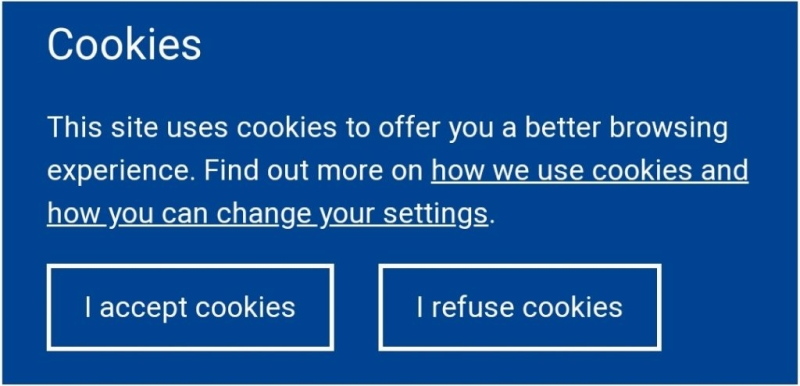Understand Simple Steps Should You Accept Cookies On Website?
Understand Simple Steps Should You Accept Cookies On Website? Want to understand the best steps to take when deciding whether to accept cookies on your website? This comprehensive guide will provide insights and expert advice to help you make informed decisions. Read on to learn more!
Accepting cookies on a website has become a common practice in the digital world. Cookies play a crucial role in enhancing user experience, personalizing content, and gathering essential data. However, the process of deciding whether to accept cookies or not can be complex, as it involves various legal, ethical, and technical considerations.
In this article, we will explore the best steps you should take when contemplating accepting cookies on your website. From understanding the importance of cookies to ensuring compliance with privacy regulations, we’ve got you covered. So, let’s dive in!
Should You Accept Cookies On Website
Cookies are small pieces of data stored on a user’s device by a website’s browser. They enable websites to remember user preferences, login information, and browsing behavior, making the browsing experience more convenient and personalized. Cookies also serve as valuable tools for website owners to analyze visitor interactions, optimize site performance, and deliver targeted content and advertisements.
The Types of Cookies You Should Know About
- Session Cookies: These temporary cookies are active only during a browsing session and expire when the user closes the browser.
- Persistent Cookies: These cookies stay on the user’s device for a specified period, allowing websites to recognize returning visitors.
- First-party Cookies: Set by the website domain the user is currently visiting, these cookies collect data for the website owner’s use.
- Third-party Cookies: Created by domains other than the one the user is currently visiting, third-party cookies are often used for advertising and tracking purposes.
- Secure Cookies: These cookies are encrypted to enhance security, ensuring that data transmitted between the user and the website remains confidential.
- HttpOnly Cookies: With limited accessibility, HttpOnly cookies are designed to prevent client-side scripts from accessing them, reducing the risk of cross-site scripting (XSS) attacks.
Keep Reading : What is Accepting Cookies

Pros and Cons of Accepting Cookies
Pros
- Enhanced User Experience: Cookies enable personalized content, saving user preferences, and simplifying login processes.
- Improved Website Functionality: Accepting cookies can enhance website functionality, leading to smoother navigation.
- Informed Business Decisions: The data collected from cookies can provide valuable insights for businesses to optimize their websites and marketing strategies.
Cons
- Privacy Concerns: Cookies can track user behavior, raising privacy concerns and potentially leading to data misuse.
- Cookie Consent Requirements: Depending on your location and the visitors you target, you may be obligated to inform users and obtain their consent before setting cookies.
- Ad-blockers and Cookie Blocking: Some users may block cookies through browser settings or use ad-blockers, affecting data collection and personalization efforts.
Understanding Cookie Laws and Regulations
Different regions have distinct laws and regulations concerning cookies and user privacy. Familiarize yourself with the following key regulations:
- General Data Protection Regulation (GDPR): Applicable in the European Union, the GDPR mandates transparent data handling practices, requiring websites to obtain explicit consent from users before processing personal data through cookies.
- California Consumer Privacy Act (CCPA): Enforced in California, this act grants users the right to opt-out of the sale of their personal information, including data collected through cookies.
- ePrivacy Directive: An EU directive, updated in 2009, governing the use of cookies and similar tracking technologies, and requiring websites to provide clear and comprehensive information to users about cookies.
- Personal Information Protection and Electronic Documents Act (PIPEDA): Enforced in Canada, PIPEDA outlines principles for the collection, use, and disclosure of personal information, including that collected through cookies.
- Children’s Online Privacy Protection Rule (COPPA): Applicable in the United States, COPPA imposes requirements on websites that collect data from children under 13, including data obtained through cookies.
Best Practices for Obtaining Cookie Consent
To ensure compliance with cookie laws and regulations, follow these best practices when obtaining cookie consent:
- Transparent Cookie Policy: Maintain a clear and easily accessible cookie policy detailing the types of cookies used, their purposes, and how users can manage their preferences.
- Cookie Consent Banner: Implement a conspicuous cookie consent banner that informs users about cookie usage and provides an option to accept or decline.
- Granular Consent Options: Offer granular consent options, allowing users to choose which types of cookies they want to accept.
- Do Not Track (DNT) Support: Respect users’ browser Do Not Track settings, which signal the user’s preference not to be tracked.
- Age Verification: If your website collects data from minors, implement age verification mechanisms to ensure compliance with relevant laws.
Keep Reading : Best Wifi Router For Streaming TV
How to Configure Cookie Settings
Configuring cookie settings on your website involves various technical aspects. Here’s how you can do it effectively:
- Consent Management Tool: Consider using a consent management tool to automate the cookie consent process, making it easier to comply with various regulations.
- Preference Center: Set up a user preference center where visitors can manage their cookie preferences and make changes easily.
- Cookie Expiry Dates: Assign appropriate expiry dates to different cookies, ensuring they are deleted from the user’s device after a defined period.
- Cross-Domain Tracking: If using third-party cookies for tracking, implement measures to prevent unauthorized access and ensure user data remains secure.
Keep Reading : How to Get American Netflix in Australia With a VPN in 2023
Evaluating the Impact of Cookies on Your Website
After accepting cookies, it’s essential to evaluate their impact on your website’s performance and user experience. Consider the following steps:
- Analyze User Behavior: Use analytics tools to track user behavior, interactions, and conversions to gauge the effectiveness of cookies in enhancing user experience.
- Conversion Rates: Monitor changes in conversion rates after implementing cookies to determine their impact on lead generation and sales.
- Page Load Speed: Keep an eye on your website’s loading speed, ensuring that cookies do not significantly affect performance.
FAQs (Frequently Asked Questions)
- Should I Accept Cookies on My Website?
- Yes, accepting cookies can significantly improve user experience and offer valuable insights for optimizing your website and marketing efforts.
- Do I Need to Obtain Consent for All Cookies?
- It depends on the laws in your region and the type of cookies you use. In many cases, obtaining consent for non-essential cookies is necessary.
- Can I Use Cookies Without Consent?
- For strictly necessary cookies, consent may not be required. However, it’s essential to provide clear information about these cookies in your cookie policy.
- What Happens if I Don’t Comply with Cookie Regulations?
- Non-compliance with cookie regulations can lead to hefty fines and damage to your brand’s reputation. It’s crucial to adhere to the applicable laws.
- How Can I Ensure Cookie Compliance?
- To ensure compliance, maintain a transparent cookie policy, implement a consent management tool, and offer granular consent options.
- Are Cookies Bad for User Privacy?
- While cookies can raise privacy concerns, their implementation can be done ethically and transparently, respecting user consent and preferences.
Keep Reading : How To Connect Mobile Hotspot To Smart TV
Conclusion
Understanding the best steps to take when deciding whether to accept cookies on your website is vital in today’s digital landscape. By adhering to cookie laws, obtaining informed consent, and configuring cookie settings appropriately, you can enhance user experience while respecting user privacy.
Stay vigilant in monitoring the impact of cookies on your website’s performance, and regularly update your cookie policy to reflect changes in your practices. Remember, transparent communication and compliance are key to establishing trust with your website visitors.




